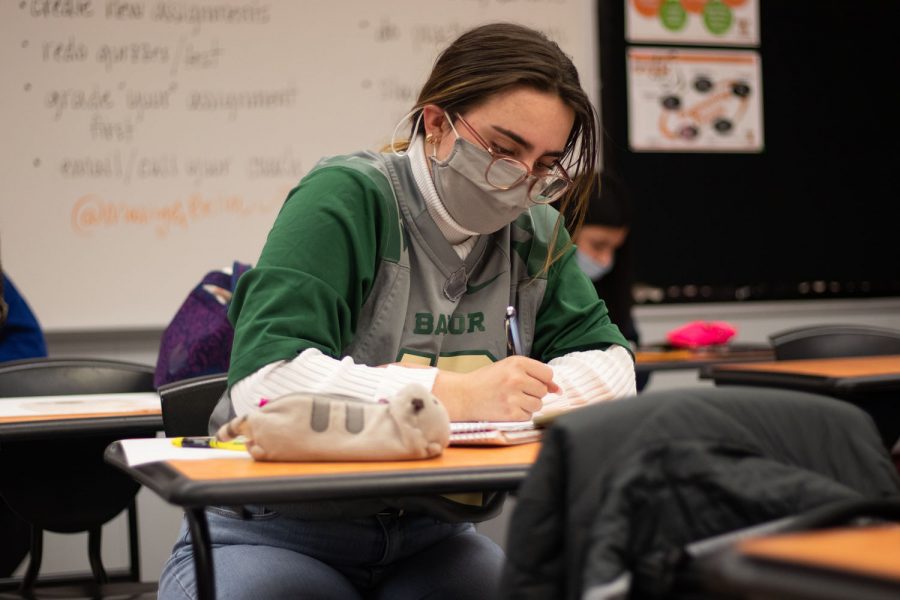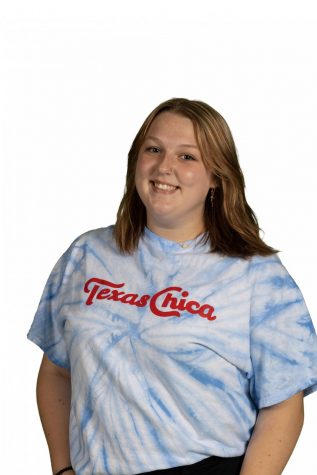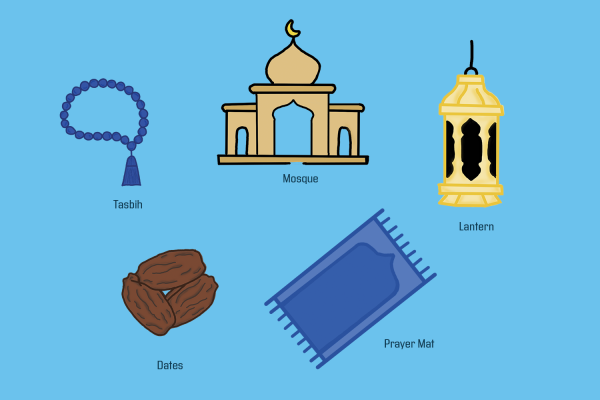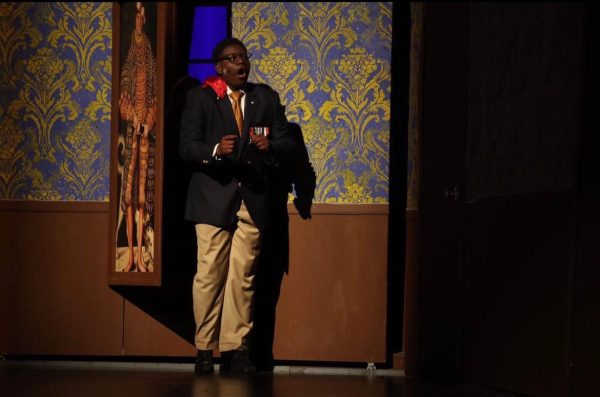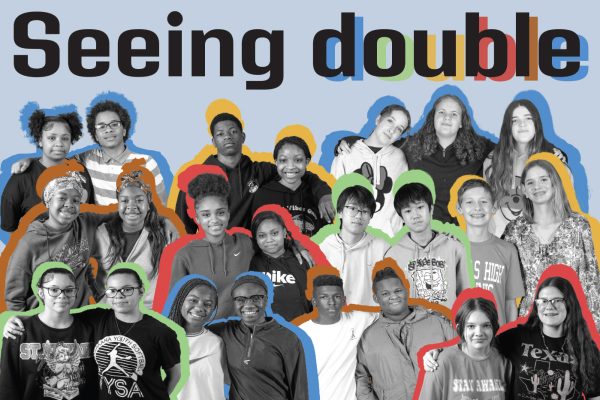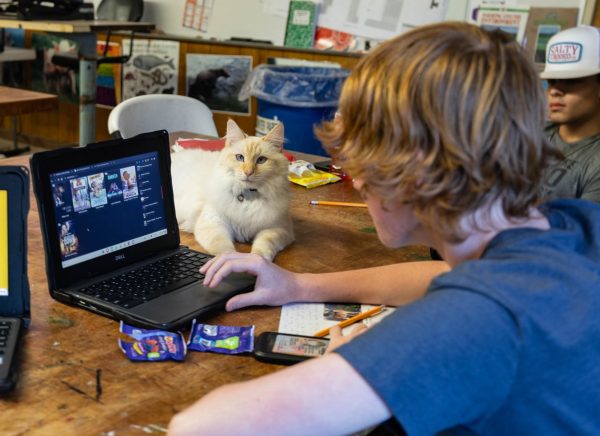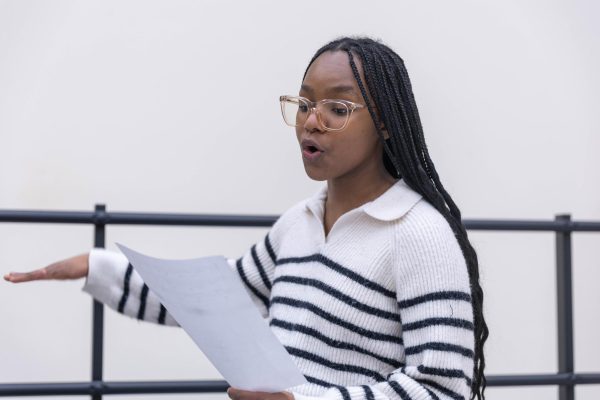Adapt and overcome
Student places positive light on disability
Junior Beth Dietze takes notes during an in-class lecture. Being diagnosed with dyslexia ever since she was young, Dietze is faced with challenges on a daily basis.
December 2, 2020
Dyslexia is a disability that affects one’s ability to read, spell, write and speak. Approximately one in five students are affected by this disorder, varying in severity. Among them is junior Beth Dietze.
“I went to get tested when I was about 6 years old, but I was actually told [I had dyslexia] closer to 7 or 8,” Dietze said. “My sister was tested and had it. My teachers were telling my mom that I wasn’t as advanced as other students, and it turns out that I [had dyslexia as well].”
Diagnosis of the condition occurs around ages 5 or 6, due to the start of preschool and kindergarten. It affects how the brain processes reading and language, causing undiagnosed students to struggle in school. For Dietze, her diagnosis resulted in a boost of confidence and reassurance.
“[Getting diagnosed] was a huge relief and weight off my shoulders because I genuinely thought I was dumb,” Dietze said. “I thought I wasn’t as smart as the other kids, when in fact I just learn a lot differently than everyone else.”
Dyslexia is a neurobiological condition, meaning it is hereditary and can be inherited from parents. Dyslexia was passed down to Dietze by her father, who also shares the disorder.
“Me and my brother and sister all have [dyslexia]. My brother is very acute, and my sister’s is relatively mild, [but] it’s pretty severe [for me],” Dietz said. “We all did different things like vision eye therapy and academic assistance courses that allowed us to control parts of dyslexia and to keep our brain working under control.”
There are three types of dyslexia: mild, moderate and severe. In the mild case, symptoms may be absent and may seem like laziness to parents. Moderate dyslexia includes more severe symptoms and literature-related issues. Dietze, however, is a part of the small percentage with a severe case of dyslexia. It can affect academic performance, direction and put sufferers at a significant disadvantage throughout life.
“[Dyslexia] causes people to struggle in reading and writing, and some people, like me, have directional issues,” Dietze said.
I can’t [differentiate] north, south, east and west. I can’t tell my left [from] my right. I literally label my hands. For my driving test, I labeled my hands so I would know which way to go.
— Beth Dietze
Along with directional problems, dyslexia has affected Dietze’s reading comprehension. This is a direct result of the effect dyslexia has on her ability to read at all.
“When I read books, the words move on the page and lines will switch, or I’ll skip a line,” Dietze said. “Sometimes pages will go completely blank, and I’ll have to flip through the book and then go back so I can actually read it because the words move everywhere.”
One way Dietze has learned to adapt to her disability is by using audiobooks, which allow her to listen to the text instead of reading it. If she is not using an audiobook, she prefers having assignments read out loud to her.
“One thing that’s really, really helped me this year is almost all my textbooks have an audiobook, so I can listen to the book,” Dietze said. “That helps me understand it and read it so much faster. It also helps me [because] when I read along [or] answer questions on tests or quizzes, I almost always misread them. I have to have someone come read them to me because if I don’t understand what it’s saying, I can’t answer a problem right.”
Another way she has modified her learning is by using highlighters, specifically pink and green.
“I’m partially colorblind to blues and yellows, and mixing them together for some reason worked for me,” Dietz said. “The highlighting allows me to not only associate a certain phrase and words with different definitions, [but it] helps me differentiate what I’m looking at.”
In addition to being diagnosed with dyslexia, Dietze also has Attention Deficit Hyperactivity Disorder. People with ADHD have trouble focusing and staying on task, which also affects academic performance.
“One thing that I’ve learned with having both [conditions] is that going to public areas where there [is] a little bit of noise going on helps me focus better,” Dietze said.
With all of the obstacles Dietze has and continues to overcome, she has not let her disabilities get in the way of doing things she loves, like being theater club secretary, art club vice president and mascot.
“My job as [theater] secretary is literally taking notes during meetings, and being dyslexic, that is so hard for me,” Dietze said. “[Doing the job] has gotten me to where I’ve had to train myself better — to be able to listen and take notes. It’s helped [me be] able to keep organized and try to get all the important points of information.”
Being able to adapt and overcome the challenges she has faced has helped Dietz become the person she is today. She is more confident and assertive.
“[I have had to] learn to assert myself and be like, ‘I have accommodations. I’m dyslexic; I need extra time on this test, and/or I need this read to me,’” Dietze said. “[It] has not only been helpful in getting my accommodations and what I need but has also helped in leadership aspects and as a person in general.”
She also recognized the blessing it was to be diagnosed with dyslexia at such a young age.
“The diagnosis affected my grades tremendously in the fact that if I wasn’t diagnosed, I couldn’t get the help that I needed,” Dietz said. “I wouldn’t be where I am today if I didn’t have that ability to get those notes and extra time. The diagnosis saved my life academically.”
While remaining optimistic despite her circumstances, Dietze credited Albert Einstein for her motivation and hope for the future. Einstein was diagnosed with severe dyslexia, like Dietze. Despite his condition, Einstein won numerous awards further proving his academic intelligence.
“[Albert Einstein] is a big factor to why I try really hard in school. His parents thought he was dumb because he couldn’t read well,” Dietze said. “Then, he turned out to be one of the most famous and world-renowned scientists and mathematicians in the world. He was an insanely creative, insightful and philosophical person, and he had the same disability that I do. It gives me something to push on and move forward to.”


